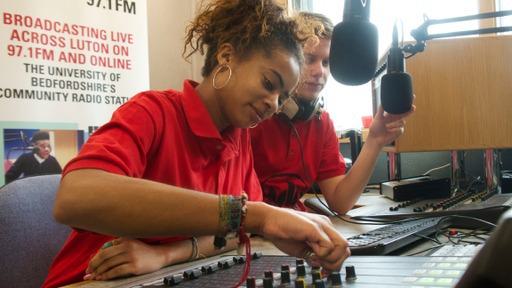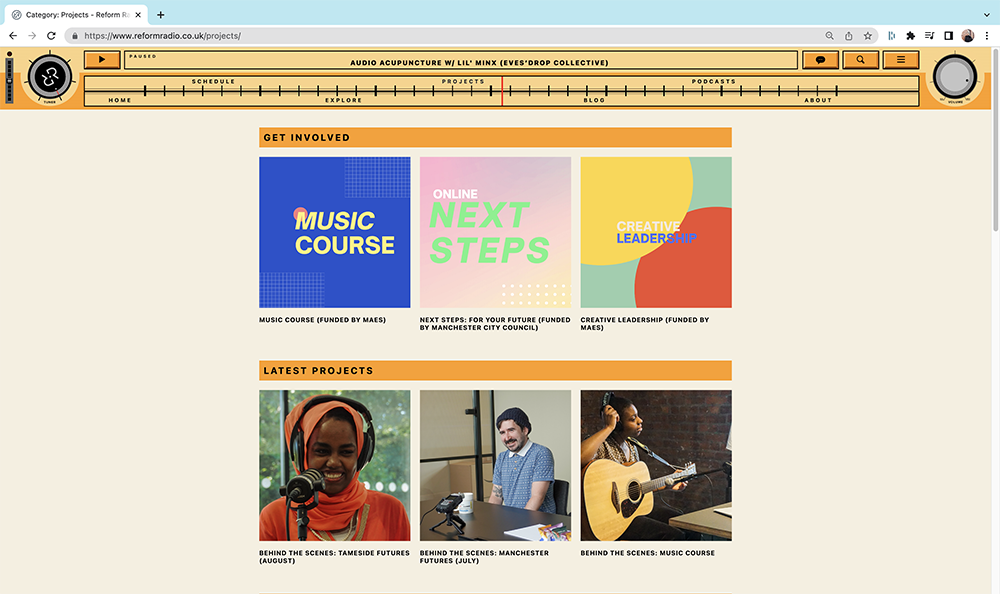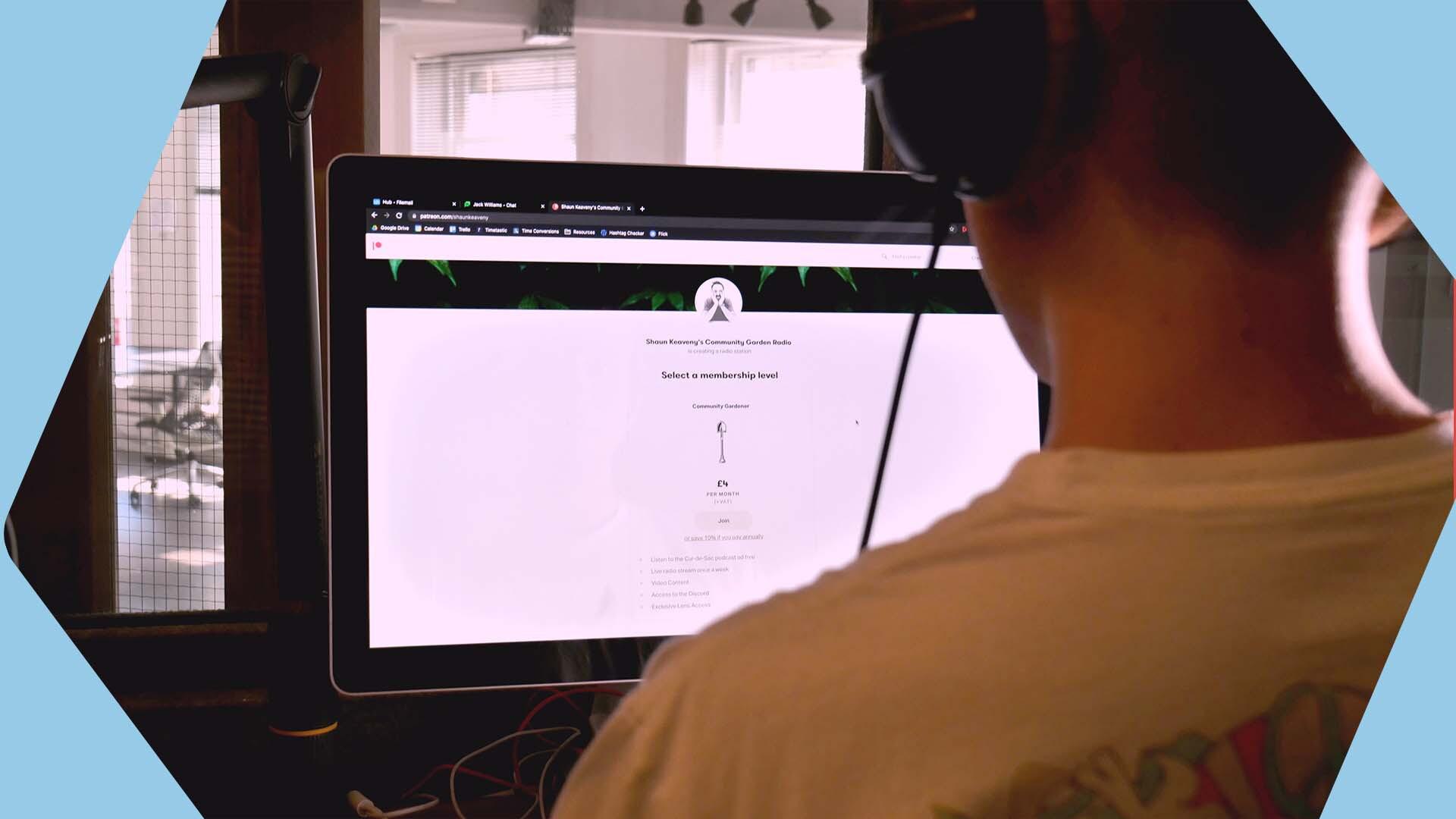Need advice? Let's talk.
Get straightforward guidance from your broadcasting partner. Schedule a call to chat with the team about your radio station.
Book DemoHow to Manage a Radio Station Successfully
From building your schedule to approaching sponsors, broadcasting experts weigh in what it takes to manage a radio station successfully.

Managing a radio station can be a joyous, rewarding experience. But when you're juggling lots of moving parts and different personalities, it's not always a walk in the park. Here's some actionable advice to ensure your station is managed well and stays on the scene for years to come.
Have a Clear Station Purpose
What is your purpose of your radio station and who is your target audience? Nail this down first and foremost, as your stations purpose informs every element of station management.
You could be a community station targeting people you live and work in your local town. Or you could be a radio station for the fans of a sports team, like how 1866 Sport is for fans of Chesterfield FC. Music For Pets, was designed to calm people's pets when left at home and their target audience is well you guessed it... people's pets.

Build a Schedule for Your Target Audience
To manage a radio station well, you'll need to carefully consider your schedule. That means keeping your target audience right at the heart of it. As Terry Lee, Vice Chair of the Community Media Association (CMA) and station manager at RadioLaB 97.1 FM said:
"How does scheduling a given programme at a given time help your audience?”
When targeting a particular community, get that community involved. Some of it is common sense. Listeners don't expect an 18-year-old presenting a Golden Oldies show. Neither do they expect a 60-year presenting on youth culture. Radio is all about connection. And listeners relate to people who've had similar experiences as them.

With RadioLaB 97.1 FM, their target audience is students and young people in Luton, UK. So this is who they target in getting involved in the station, including those people who've never considered making radio before:
"Good community radio should always be reaching out to offer a platform to under-represented voices."
Once you’ve got a roster of relevant shows for your target audience, decide which shows work best when. Again, common sense prevails. Sports radio schedules will be heavily influenced by match days. A dance music station can schedule DJs in the times before and after listeners go to clubs.
Keep Your Schedule Fluid
As Terry told us, building a schedule is not an exact science. Shuffling shows around can be for the good of the station, the show or both. But make sure everyone knows the schedule is never concrete.
Listener analytics tell you who is tuning in to each show. Use this valuable insight to see what shows are doing well, and what need attention.
Lee recommends organising a schedule review every 2 weeks. That way everyone knows upfront it can and will change.
Curate Your Stations Culture
As the Chair of the CMA and founder of the charity SoundVision, Dom Chambers told us, the culture of the radio station is integral to its success. And the station culture is set by you, the station manager.
"It's a lot easier to get a culture right at the start than it is to change one."
A station manager needs to inspire their team to work towards the same mission. Equally, they should support their team in developing and executing their own ideas. Dom tells us a good station manager finds the balance between the two. A station without clear direction won’t succeed. Likewise, a station where only the manager is allowed to contribute is destined to fail.

With volunteers, the characteristics you should prize are commitment and enthusiasm. Paired together, your volunteers will show up on time and be dedicated to the success of the station.
"Commitment is really important. Whilst it may be a volunteer orientated project, it is nonetheless a business. It has responsibility."
These volunteers are worth their weight in gold, so be sure to look after them. Dom told us radio stations can give up hard-earned licenses or go to seed for one shared reason. And that's discontented volunteers.
Be sure to create avenues for volunteers to air their grievances and give feedback. Dom recommends having a volunteers board that’s elected annually. The chair of the volunteers board should communicate freely with the station management. This can connect volunteers with management in a way that is open and isn't intimidating.
When you receive feedback, make sure you resolve grievances and keep volunteers happy.
Provide Training for All
Get everyone on the same page with some open session training days, like RadioLaB 97.1 FM and Resonance FM both do. Prior experience will vary, but those new to your station all have one thing in common: they don’t know how things work at your station.
Your training days may include:
- An intro to the station and its rules (including how to conduct oneself on and off air).
- Equipment run-throughs of how to go live and troubleshoot problems.
- Shadowing some experienced programmes/engineers/presenters.

After training, let the newer members take the reins under the direction of more experienced members. Give them a go at a pre-recorded pilot of a programme. People learn by doing rather than listening. This will give them confidence in tackling problems on their own.
Engage Your Listeners & Community
Your listeners and community are one of the same, so engaging with them has to be a top priority. Often it's a case of you get what you give. The more engagement you put it in, the more likely you are to have an active listenership.
Get involved by:
- Linking up with local authorities, schools and other community groups.
- Go to the places your community hangs out: the pub, music venues, sport centres, religious centres.
- Use digital spaces: create posts on social media and forums that ask for engagement. Use polls, start discussions, share interesting information. When you get interactions, be sure to respond and open up dialogues.

Interestingly, receiving complaints is the a great way to engage listeners. Don't dismiss this useful feedback. Dom advocates you liaise with the listeners that are complaining. For example, if they a listener says something is lacking on your station, invite them to fill in the gap.
Don't Approach Advertisers Too Early
As a station manager, focus on building a decent listenership before approaching advertisers. Also consider how your station comes across to advertisers. Both Dom Chambers and James Hazell from Gen X Radio recommend even if you're not licensed, it's worth abiding by your licensing body's rules. Advertisers will be put at ease knowing there are standards your station will stick to...
When you've got the listenership and you're compliant with your licensing body, then it's a case of reaching out to the companies and businesses that provide goods and services to your target audience.
Tap Into Sponsorships & Funding
Some stations, like Reprezent, don't use adverts in the traditional sense. Station Manager, Adrian Newman, told the BOOST podcast that the volunteers and management alike believe it'll cost them listeners. Their team say when an ad comes in, the listeners will turn over.
Instead, they rely on sponsorships & funding to keep the lights on. Dom told us sponsorships are a big resource for a station manager. Can you address a societal issue with what you offer at your radio station? Identify a social agenda and sweep in funding to provide opportunities while keeping your station afloat. Take Manchester station, Reformation Radio, for example. They host various sessions in radio and podcasting for young people who are unemployed, many of which are funded by external bodies.

Terry offers some advice once you've secured some sponsorships. First, sponsors will be more willing to work with you if you respond to them ASAP and meet the deadlines set. Also, be honest about your shortcomings. Most sponsors will have given money because of the good work you do. So, they aren't necessarily expecting perfection but honesty and punctuality are good.
Get A Good Board of Directors
Finally, Dom told us the biggest oversight community and independent radio stations make is not having a board of directors. Getting a good board of directors is the single most impactful thing a station manager can do for their radio station.
“I haven’t come across a single radio station that’s gone out of business that had a robust board."
Your governors should be highly qualified individuals that will help steer your station. They'll link your station to the business community, to the local education and to local governance. And this can lead to vital funding and support. Managing a radio station can be a lot of pressure when you're the sole decision maker. As the old expression goes, many heads are better than one.
To Wrap Up
Managing a radio station throws up a few challenges alongside many pleasures. Share how your broadcasting journey is going in our Radio Community Group. Or let us know what you thought of these expert tips over on Twitter, Instagram or our Facebook page.



